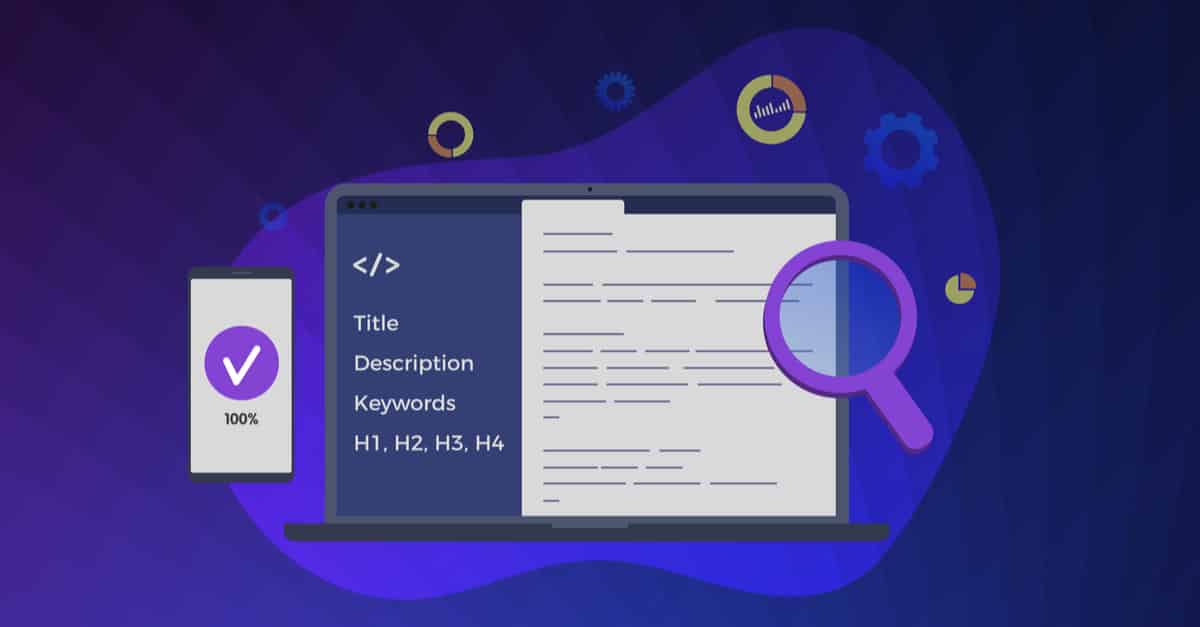The power of on-page SEO is undeniable, carrying the potential to drastically increase website traffic and thus new leads; that is if a proper SEO strategy is effectively implemented and executed.
If you’re an online business in 2022, eager to take growth to the next level, it’s imperative that your website appears across search engines and atop search results; it’s the name of the game, after all.
In order to make sure you’re website is successful in its search engine appearances, SEO must be a top priority, and more specifically, on-page SEO. So, if you’re curious as to how to make your business more visible in organic searches and thus increase website visitors, this guide is for you!
What is On-Page SEO?
Before we define on-page SEO, it’s important to first gain an understanding of what the general definition of SEO is. Simply put, SEO, or search engine optimization, is the journey of improving website traffic via unpaid strategies by boosting its visibility on search engines (i.e. Google).
On-page SEO, then, is the specific process of optimizing the quality and functionality of a website’s contents to further improve a website’s search ranking at large. Such contents include front-end components like the web content itself (i.e. website copy, high-quality imagery, etc.), and back-end components such as HTML and internal linking.
Other on-page SEO components include:
- Website Speed (Technical SEO)
- Mobile Optimization
- Website Structure & Architecture
- Alt-Text & Meta Descriptions
- Webpage Titles
The difference between on-page SEO and technical SEO, for example, is that it’s largely in your hands to change it. Though it might help to have an expert that can help with the back-end components, it’s largely an edit-and-revise approach that is easily executed when it comes to the front-end components.
Providing visitors with a top-quality experience is essential for both attraction, retention, and conversion. On-page SEO can provide such an experience.
The Importance of On-Page SEO
While having a website is certainly the first step to operating online, it’s not enough to succeed in today’s digital ecosystem; the quality of content visible to the visitor must be optimized to achieve desired results.
Like all SEO strategies, on-page SEO helps a business’s website rank atop search results in search engines. By improving on-page SEO you inherently improve visibility. Upon visitation, you also improve the user’s experience, ultimately increasing conversation rates and thus sales.
Keep in mind that the front-end of your website is today’s digital storefront to your business. Just as you’d like your store to be as presentable and functional as possible for those that walk through the door, so should you desire the same for your website. This, in short, is on-page SEO and the role that it plays in the success or lack thereof for businesses.
How You Can Improve On-Page SEO
On-page SEO is an ongoing process that requires continuous edits, revisions, audits and the monitoring of success. If you’ve identified the need for on-page SEO improvements, below are five ways you can do so!
Perform an Initial Website Audit
Performing an initial website SEO audit, there are many tools that can assist with this – you’ll identify the necessary holes in your website’s architecture that needs improving. Questions as to what web pages need on-page SEO, what target keywords are lacking, what content is missing, and so on.
Update Web Content
Once the audit has been conducted, it’s now time to move forward and take the necessary action for improving on-page SEO. The likely first step is an update to web content and make it as engaging as possible. Such content includes website copy, web page titles, updates to imagery and alt-text, and meta descriptions.
Add Internal & External Links
Link-building is a necessity when it comes to SEO, however, it’s often overlooked or ignored. In collaboration with keyword research, interlinking and inputting outbound links that are relevant and high-ranking will inevitably improve your website’s overall SEO score, proving authority within search results.
Optimize Website URL
Just as it’s important to update page URLs, so too is it important to optimize the website URL. Optimizing URLs involves some research, however, some key components include URL length and keyword inclusion.
Monitor Performance & Adjust Accordingly
As mentioned earlier, on-page SEO requires diligent and frequent monitoring of both performance and potential adjustments. Should the initial changes you make after the audit not be sufficient no produce any lasting improvements to conversion rates, additional changes are likely needed.
Remember, however, that improving SEO scores take time, and results aren’t going to happen overnight. In short, on-page SEO requires both diligence and patience. By following the above tips and focusing on the things you can control, you’ll be well on your way to improving on-page SEO in 2022 and experiencing the results you desire.
We hope this guide has given you some valuable insight into on-page SEO and how you can use it on your website.
There is no hard and fast rule to on-page SEO, but if you need to use it, we recommend integrating it into your marketing strategy for the best results.


